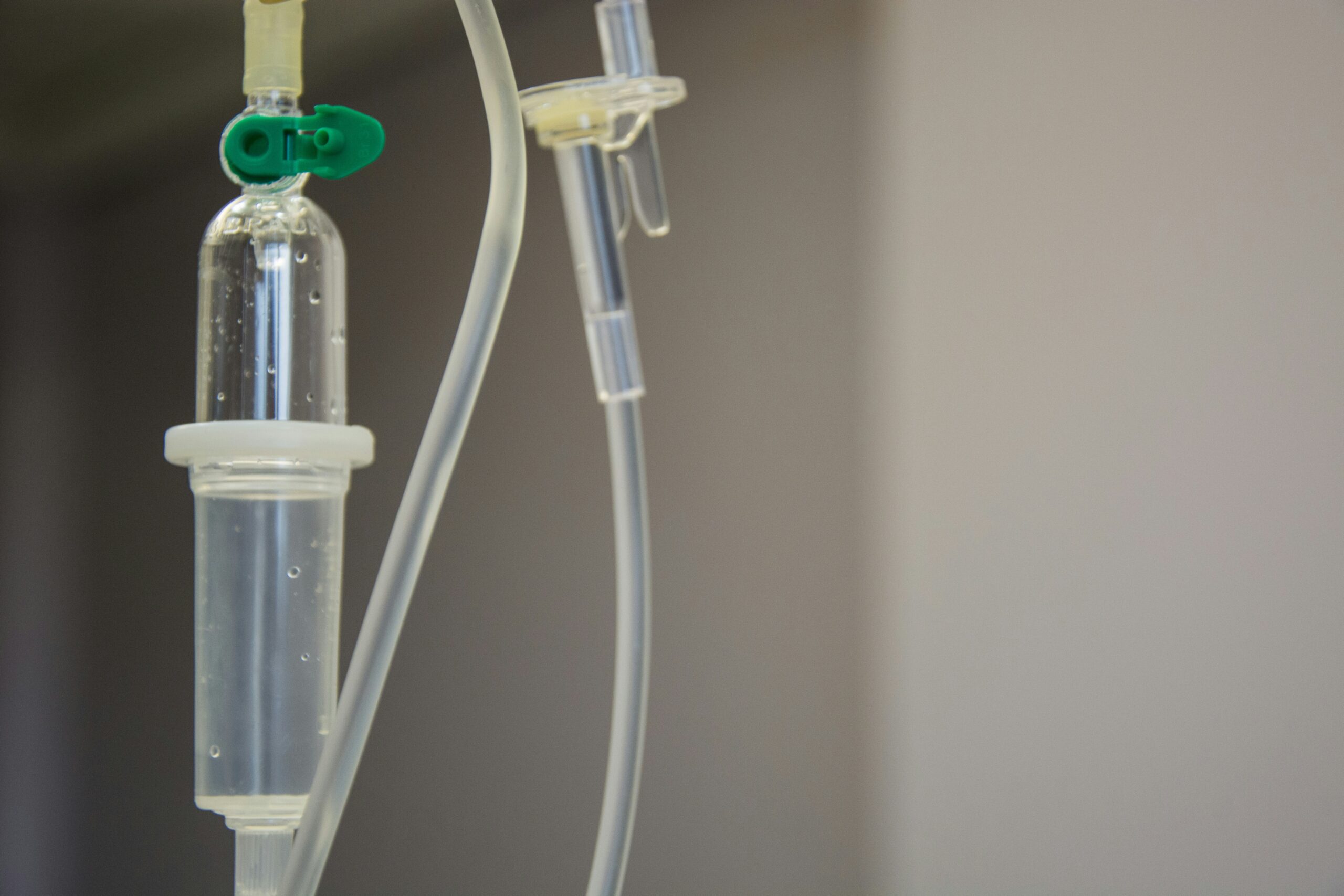Stress is a common factor in our daily lives, affecting various aspects of our well-being. But have you ever wondered if stress can also impact your prostate health? In this article, we explore the intriguing question of whether stress can cause a swollen prostate. Shedding light on this potential connection, we delve into the effects of stress on prostate health and the importance of managing stress to maintain a healthy prostate. So, if you're curious to learn more about this intriguing topic, keep reading!

Understanding Prostate Health
Defining the prostate and its function
The prostate is a small gland located below the bladder and in front of the rectum in males. It is an essential part of the male reproductive system, responsible for producing and secreting fluid that forms a part of semen. The prostate gland helps nourish and protect sperm, aiding in their survival and ability to fertilize an egg.
Different conditions that can affect the prostate
There are various conditions that can potentially affect the prostate. Some of the most common ones include prostatitis, which is an inflammation of the prostate gland, benign prostatic hyperplasia (BPH), which is the enlargement of the prostate, and prostate cancer, which is the development of cancerous cells in the prostate. Each of these conditions can lead to different symptoms and require appropriate medical attention.
Symptoms of a swollen or inflamed prostate
When the prostate becomes swollen or inflamed, it can cause discomfort and impact urinary and sexual function. Some common symptoms of a swollen or inflamed prostate include frequent urination, difficulty starting or stopping urination, weak urine flow, pain or burning sensation during urination, blood in the urine or semen, and erectile dysfunction. If you experience any of these symptoms, it is important to consult a healthcare professional for an accurate diagnosis and appropriate treatment.
The Intersection of Stress and Prostate Health
How stress can impact physical health
Stress is a normal physiological response to perceived threats or challenges. However, prolonged or chronic stress can have detrimental effects on physical health. When the body is under stress, it releases stress hormones such as cortisol, which can lead to increased blood pressure, elevated heart rate, and a weakened immune system. These physiological changes, when experienced over a long period, can contribute to the development or worsening of various health conditions, including those affecting the prostate.
Discussing the connection between stress and inflammation in the body
Inflammation is the body's response to injury, infection, or foreign substances. While inflammation is a crucial part of the body's defense mechanism, chronic inflammation can occur when the immune system becomes overactive or fails to switch off after the initial threat has passed. Stress has been found to play a role in triggering and perpetuating chronic inflammation. Chronic inflammation is associated with a range of health issues, including prostate inflammation, or prostatitis.
Link between mental health conditions and chronic diseases
It is well-established that mental health conditions, such as anxiety and depression, can significantly impact physical health. Chronic stress, often associated with mental health conditions, can contribute to the development and progression of chronic diseases, including those affecting the prostate. The intricate relationship between mental health and physical well-being further emphasizes the need to address psychological factors when considering overall health and disease prevention.
Current Research on Stress and Prostate Inflammation
Studies that have explored the stress-prostate health link
Researchers have increasingly recognized the potential influence of stress on prostate health. Several studies have investigated the association between stress and prostate inflammation, looking at factors such as perceived stress levels, cortisol levels, and markers of inflammation. These studies have provided valuable insights into the potential mechanisms underlying the stress-prostate health relationship.
The current scientific consensus on the issue
While research on the link between stress and prostate inflammation is still emerging, there is growing evidence to suggest a connection between the two. However, further studies are needed to establish a definitive scientific consensus. It is important to note that stress is not the sole cause of prostate inflammation or other prostate conditions, as there are multiple factors involved in their development and progression.
Theories and hypotheses from leading researchers
Leading researchers in the field have proposed various theories and hypotheses regarding the relationship between stress and prostate inflammation. These include the impact of chronic stress on the immune system, alterations in hormone levels, and the activation of specific molecular pathways that contribute to inflammation. Continued research efforts aim to further elucidate these theories and expand our understanding of the complex interplay between stress and prostate health.
Understanding Stress in Our Modern Life
Types of stress: acute vs chronic
Stress can be classified into two main types: acute stress and chronic stress. Acute stress is short-term and usually occurs in response to immediate or perceived threats. It is the body's natural survival response and typically subsides once the threat has passed. On the other hand, chronic stress persists over an extended period and can result from ongoing life challenges, work-related pressure, or other long-term stressors. Chronic stress is the type of stress that may have a more significant impact on prostate health and overall well-being.
Stressors commonly faced in modern society
In our modern society, there are numerous stressors that individuals commonly face. These can include high work demands, financial pressures, relationship difficulties, caregiving responsibilities, and societal expectations. Additionally, technological advancements have brought about a constant bombardment of information, leading to information overload and, consequently, increased stress levels. The cumulative effect of these stressors can contribute to chronic stress and potentially impact prostate health.
The physiological and psychological effects of stress
Stress triggers a cascade of physiological and psychological responses in the body. Physiologically, stress activates the sympathetic nervous system, leading to increased heart rate, elevated blood pressure, and altered hormonal balance. Chronic stress can disrupt this delicate balance, affecting various body systems, including the endocrine, immune, and cardiovascular systems. Psychologically, stress can manifest as irritability, anxiety, depression, and difficulty concentrating, further exacerbating its impact on overall well-being.

The Body's Response to Stress
The fight or flight response explained
When faced with a stressful situation, the body initiates the “fight or flight” response. This response is an adaptive mechanism designed to mobilize the body's resources to either confront the stressor or escape from it. The body releases stress hormones, such as adrenaline and cortisol, which provide an immediate burst of energy and heightened focus. While this response is vital in short-term stressful situations, prolonged activation of the fight or flight response can have negative consequences on physical and mental health.
How prolonged stress changes hormonal balance
Prolonged stress can disrupt the delicate balance of hormones in the body. Cortisol, often referred to as the stress hormone, plays a crucial role in regulating the body's response to stress. In times of chronic stress, cortisol levels can become chronically elevated or dysregulated, leading to a range of physiological disturbances. These disturbances can impact immune function, metabolic processes, and inflammation levels, potentially influencing prostate health and contributing to the development of prostate conditions.
The impact of stress hormones on different systems in the body
Stress hormones, including cortisol, can have widespread effects on various systems in the body. Elevated cortisol levels over an extended period can lead to increased blood pressure, impaired immune function, disrupted sleep patterns, and altered metabolism. These changes can have a cascading effect on overall health and potentially contribute to the development or worsening of prostate conditions. Understanding the impact of stress hormones on different body systems is vital in comprehending their relationship with prostate health.
The Influence of Stress on Prostate Enlargement
Possible mechanisms for how stress could lead to a swollen prostate
While the specific mechanisms linking stress to prostate enlargement are still being studied, several potential pathways have been proposed. Chronic stress can activate the sympathetic nervous system, leading to increased levels of adrenaline and cortisol. These stress hormones may contribute to inflammation, immune system dysregulation, and altered hormone levels, all of which have been implicated in prostate enlargement. Additionally, stress-induced lifestyle changes, such as poor dietary choices and lack of exercise, may further contribute to prostate swelling.
The role of cortisol and other stress hormones
Cortisol, as a primary stress hormone, plays a significant role in the body's response to stress. It has diverse effects on various body systems, including the immune system and inflammation levels. High or prolonged cortisol secretion can potentially contribute to chronic inflammation, which has been associated with prostate enlargement. Other stress hormones, such as adrenaline, may also play a role in the physiological processes that contribute to the development of prostate conditions.
Discussing the concept of stress-induced inflammation
Inflammation is a fundamental process involved in the body's response to stress and perceived threats. While short-term inflammation is a normal and vital part of the body's healing process, chronic stress can induce persistent inflammation. Stress-induced inflammation has been linked to various health conditions, including those affecting the prostate. Elevated levels of pro-inflammatory markers have been observed in individuals experiencing chronic stress, potentially serving as a link between stress and prostate inflammation.

Managing Stress to Improve Prostate Health
Stress management techniques such as meditation, yoga, and deep breathing
Effective stress management techniques can significantly improve both mental and physical well-being. Practices such as meditation, yoga, deep breathing exercises, and mindfulness-based stress reduction have shown promise in reducing stress levels and promoting relaxation. These techniques help activate the body's relaxation response, counteracting the physiological effects of stress, and fostering overall prostate health by reducing inflammation and maintaining hormonal balance.
Therapeutic intervention like cognitive-behavioral therapy
Cognitive-behavioral therapy (CBT) is a widely used therapeutic intervention for managing stress and improving mental health. CBT focuses on identifying and modifying unhelpful thought patterns and behaviors. By exploring the relationship between thoughts, emotions, and behaviors, individuals can gain insight into their stressors and develop healthier coping strategies. CBT has been found to be effective in reducing stress levels, enhancing resilience, and improving overall well-being, all of which can contribute to better prostate health.
The benefits of a balanced diet and regular physical activity
A balanced diet and regular physical activity are fundamental components of a healthy lifestyle and can have a positive impact on stress management and prostate health. Certain foods, such as fruits, vegetables, whole grains, healthy fats, and lean proteins, can help support immune function, reduce inflammation, and provide essential nutrients. Incorporating regular exercise into your routine has been shown to reduce stress, improve mood, and enhance overall well-being, potentially reducing the risk of prostate conditions.
Prostate Health: Prevention and Treatment Strategies
Lifestyle changes that can decrease prostate swelling
In addition to stress management techniques, certain lifestyle changes can help decrease prostate swelling and promote prostate health. These include maintaining a healthy weight, staying physically active, avoiding excessive alcohol consumption, and limiting the intake of foods high in saturated fats and refined sugars. Adopting a diet rich in fruits, vegetables, whole grains, and lean proteins, along with staying hydrated, can provide essential nutrients and support overall prostate health.
Medical treatments available for prostate conditions
In cases where lifestyle changes alone are insufficient, medical treatments may be necessary to manage prostate conditions. Depending on the specific condition, treatment options can include medication, minimally invasive procedures, or surgery. It is essential to consult a healthcare professional for an accurate diagnosis and appropriate treatment plan tailored to your individual needs.
How reducing stress can improve overall health and aid in disease prevention
Reducing stress not only has a positive impact on prostate health but also improves overall health and aids in disease prevention. Chronic stress has been linked to various chronic diseases, including cardiovascular disease, diabetes, and mental health conditions. By incorporating stress management techniques, making lifestyle changes, and seeking appropriate support, individuals can potentially lower their risk of developing these conditions and experience improved overall well-being.
The Role of Mental Health in General Wellbeing
How stress and other psychological factors can influence disease outcome
Psychological factors, including stress, anxiety, and depression, can significantly influence disease outcome and overall well-being. Research has shown that psychological distress can contribute to the development, progression, and exacerbation of various physical health conditions, including those affecting the prostate. Addressing mental health concerns and implementing effective stress management strategies are crucial in supporting general well-being and potentially improving disease outcomes.
The importance of mental health support in healthcare
Recognizing the importance of mental health support in healthcare is a crucial step towards comprehensive and holistic healthcare. Integrating mental health into healthcare settings can improve patient outcomes, enhance treatment adherence, and promote overall well-being. By providing access to mental health professionals, implementing screening protocols, and fostering a collaborative approach to healthcare, individuals can receive the necessary support for both their mental and physical health needs.
Benefits of mental health interventions on physical health conditions
Research has consistently demonstrated the positive effects of mental health interventions on physical health conditions. Interventions such as therapy, counseling, and support groups can help individuals effectively manage stress, reduce symptoms of anxiety and depression, improve adherence to medical treatments, and enhance overall quality of life. By addressing mental health concerns, healthcare providers can offer comprehensive care that acknowledges the interconnectedness of mental and physical well-being.
Emerging Areas of Research and Future Directions
Potential new areas of investigation in the stress-prostate health relationship
As research on the stress-prostate health relationship continues to evolve, new areas of investigation are beginning to emerge. Some potential areas of focus for future research include the role of epigenetics in mediating the effects of stress on prostate health, the impact of stress reduction techniques on prostate-specific biomarkers, and the long-term effects of chronic stress on prostate cancer progression. Studying these aspects will help deepen our understanding of the complex interactions between stress and prostate health.
What future studies need to confirm or debunk
Future studies need to confirm and expand upon the existing evidence surrounding the stress-prostate health relationship. It is crucial to conduct well-designed studies with larger sample sizes, diverse populations, and longitudinal follow-ups to establish causality, evaluate the effectiveness of stress management strategies, and explore potential underlying mechanisms. Additionally, differentiating between acute and chronic stress and assessing stress in more comprehensive ways can provide a more nuanced understanding of its impact on prostate health.
The promise of integrated care in managing chronic diseases
Integrated care, which involves collaboration between healthcare professionals from different disciplines, offers promise in managing chronic diseases, including those affecting the prostate. By coordinating medical, psychological, and lifestyle interventions, integrated care models aim to optimize patient outcomes and enhance overall well-being. This multidimensional approach can address not only the physical symptoms but also the psychological and social aspects of living with a chronic condition, providing comprehensive and patient-centered care.
In conclusion, while the link between stress and prostate health is still being explored, there is growing evidence to suggest that chronic stress can indeed impact prostate health and contribute to the development or worsening of prostate conditions. Understanding stress in our modern lives, its effects on the body, and the potential mechanisms connecting stress to prostate enlargement is essential in managing and improving prostate health. By implementing stress management techniques, adopting a healthy lifestyle, and seeking appropriate medical care, individuals can strive towards better prostate health and overall well-being. Incorporating mental health support into healthcare and furthering research in the field will also play a crucial role in comprehensive disease prevention and management.

